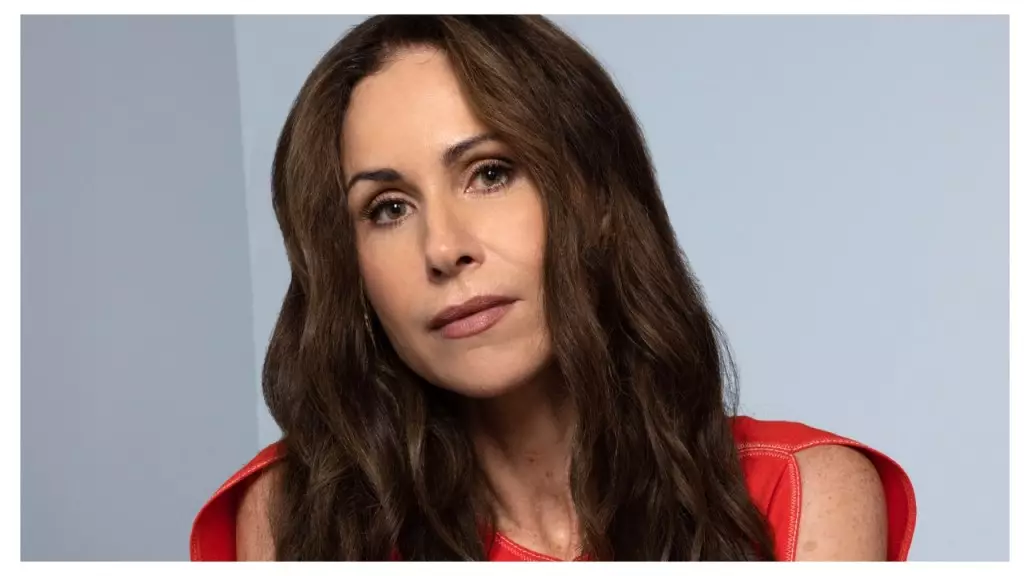Minnie Driver, an actress renowned for her versatile roles, is set to reprise her performance as Queen Elizabeth I in the upcoming spinoff series of *The Serpent Queen*, tentatively titled *The Virgin Queen*. This announcement comes on the heels of the original series’ cancellation, which had received commendations for its depiction of historical narratives. What makes Driver’s return particularly compelling is not just her talent as an actress, but her deep fascination with the historical figure she embodies, a fascination that has colored her career and creative choices for many years.
Driver’s portrayal of Elizabeth I was not merely a performance; it was a marriage of actor and character that resonated with audiences. In her own words during the recent Red Sea International Film Festival in Jeddah, she expressed that the prospect of returning to the character is thrilling. “Until someone’s pointing a camera at me and shouting action,” she remarked, “you’re not really doing anything,” underscoring both her dedication to the craft and her excitement for the project. This level of passion indicates that Driver is not only returning to a role but is poised to explore deeper dimensions of the character that many may not have previously witnessed.
The forthcoming series promises to provide a unique lens on Elizabeth I, focusing on the woman behind the crown as well as her historical significance. Driver’s statement reveals her motivation: “The show that we really want to make is about the woman behind the crown.” This pivot from solely viewing monarchs as figures of power to unveiling their humanity is a growing trend in contemporary storytelling. By aiming to explore Elizabeth’s personal struggles and triumphs, Driver and her collaborators are set on a path that encourages audiences to connect with the complexities of a woman ruling in a male-dominated society.
The context of Elizabeth I’s rule—a time when women were denied basic rights such as property ownership—creates an intriguing backdrop for the story. Driver highlights this disparity by pointing out the remarkable achievement of a woman reigning during an era where her gender typically existed below societal expectations. This duality of strength and vulnerability, encapsulating both her triumphs and tribulations, offers fertile ground for narrative exploration, pushing for a portrayal that resonates with modern audiences who value authenticity and depth.
In addition to her acting pursuits, Minnie Driver is taking significant steps towards empowering women in the film industry. At the same festival, she revealed her efforts to create a lab designed specifically for female filmmakers, writers, and creators in the region. With over three decades of experience in the industry, Driver seeks to use her insights to foster an environment that supports emerging female talent.
Her dedication to uplifting voices that are traditionally marginalized speaks to a broader movement within the arts to create more inclusive platforms. “I’ve watched how things work on a set, how they don’t work,” Driver stated, indicating her desire to impart knowledge and facilitate growth among aspiring female artists. In a rapidly evolving landscape, initiatives like Driver’s hold the potential to reshape how stories are told, promoting narratives that reflect diverse experiences and perspectives.
While details about *The Virgin Queen* remain tightly under wraps, Driver’s enthusiasm is palpable, particularly as she expressed her hope that production would commence soon. This new venture is an opportunity not only for Driver but for viewers to engage with a historically significant figure in a manner that is both enlightening and entertaining. As production begins, one can only speculate about how the series will balance historical accuracy with dramatic exploration.
With the increasing appetite for storytelling that encapsulates the struggles and achievements of women, *The Virgin Queen* has the potential to resonate with a global audience. If executed well, the series could contribute to ongoing dialogues about gender, power, and historical representation.
Driver’s return thus embodies a rich tapestry of ambitions, aspirations, and a desire for deeper storytelling that honors the past while also paving the way for future narratives about women in history. The evolution of this project will undoubtedly be watched with anticipation by fans and critics alike, eager to see how it will redefine the legacy of Queen Elizabeth I.
